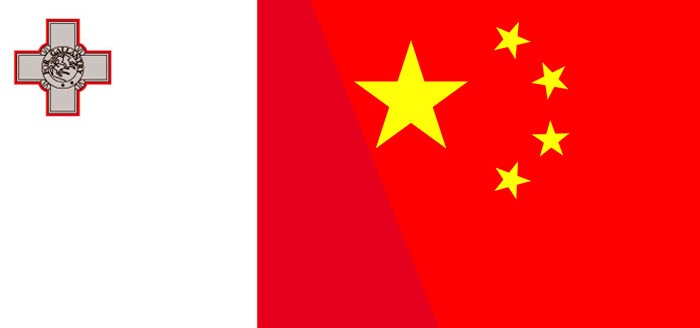 After repeatedly visiting Asia, I totally disagree with comments occasionally made that China’s industrial success is wholly attributed to its ability to replicate low quality versions of branded products at rock-bottom prices. In China there are many good examples of good quality products and brands being produced such as Audi, Airbus, and Armani. Based on these facts, what Maltese industry and policy makers should focus on is making our industry more competitive by improving the current situation and analyzing products being developed elsewhere.
After repeatedly visiting Asia, I totally disagree with comments occasionally made that China’s industrial success is wholly attributed to its ability to replicate low quality versions of branded products at rock-bottom prices. In China there are many good examples of good quality products and brands being produced such as Audi, Airbus, and Armani. Based on these facts, what Maltese industry and policy makers should focus on is making our industry more competitive by improving the current situation and analyzing products being developed elsewhere.
The Maltese industry is not really dying. Our industry has indeed changed, for example from textiles to pharmaceuticals. Overall, the number of employees has declined. However, this is either due to industry becoming more efficient hence able to produce more with less, or due to the way statistical data is being collected.
Malta’s industrial sector can become more competitive. However, what does it mean to ‘be competitive’? Goods should be produced with shorter delivery periods, better costs and quality compared to competitors. Since we lack raw materials cost is very challenging to compete on. On the other hand, improving quality provides much more opportunity. Quality can be improved by increasing the external quality of the products manufactured, the product’s functionality, the interactions that take place with clients during product development, the quality of support and after sales services, management of operations, and how operators work. Core to adopting this quality-based approach is the need to focus on shifting from just manufacturing products to designing and manufacturing products in Malta.
“Goods should be produced with shorter delivery periods, better costs, and quality compared to competitors”
To design their own products, Maltese manufacturing firms need to set up an internal Research & Development unit. At the same time, industry needs support through government policies and incentives. In their publication ‘Vision 2015’ American consultants clearly specify product design as an enabler to higher value added manufacturing. The Malta Chamber of Commerce, Enterprise & Industry has also recommended starting a Malta Business Research & Innovation Body. These recommendations need urgent implementation to shift Malta’s manufacturing industry towards becoming ‘design driven’.
The UoM’s Faculty of Engineering has been actively contributing towards a design driven approach. Our undergraduate engineers are purposely trained in this design-centric approach. Additionally, some final year student projects focusing on design are sponsored by industry: an excellent win-win mechanism. A number of both mechanical and electrical engineers have also benefited through an evening M.Sc. in Integrated Product Development. The Faculty also collaborates with industry through MCST funded Research & Innovation projects. More financial support to University would help every academic active in research to regularly receive decent research funds.
Considering the above, Malta does not and should not aim to be the next China. On the other hand, Malta should nurture its unique strengths such as a highly educated, flexible English-speaking workforce. We should aim to address weaknesses related to Malta’s manufacturing sector. This requires short-term and long-term commitments from our policy makers. Business leaders can also proactively embrace change by aiming to offer quality and innovative solutions, rather than aiming for higher production rates of existing products. The Maltese industry should support continuous training and collaborate on research activities with University. The UoM can help them become more innovative. Like Airbus, Armani, and Audi, Maltese business leaders should exploit, rather than fear, Asian industry. Some Malta based entities, such as Toly Products Ltd, are already going down these routes and are reaping the rewards of growth during a recession. Clearly others should aim to do the same to keep Malta competitive.





Comments are closed for this article!